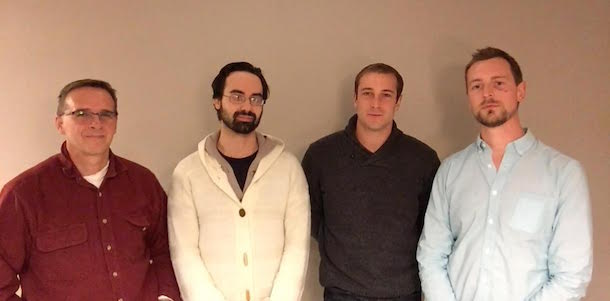If sitting is the new smoking, then we should all be standing.
But Erik Carver, the founder and CEO of StandLogix, thinks that’s missing the bigger picture. For those who want to swear off sitting, Carver said: “that’s like saying running is better than walking, so I’m never going to walk.”
Instead, Carver explained we should all be sitting and standing throughout our day. The trick is doing it in a way that's healthy and productive given our unique circumstances. His company, StandLogix, helps customize standing desks to make them user friendly and improve corporate wellness.
A Personal Mission
Carver started the company after a motorcycle accident made it impossible for him to return to a normal desk job where he sat for eight hours a day. After starting a standing desk company, he realized the major barrier for standing desks wasn’t the desk itself – it was the lack of education and awareness around it. Simply put, most people didn’t know how long to stand for (hint: it’s not all day). Building off that experience, Carver wanted to create a company that helped desk workers get more out of their day and help companies promote healthier workers.
Beyond traditional wellness programs
“Right now there’s no way to drive healthier behavior while [employees] are working,” said Carver.
Traditional corporate wellness programs fail to utilize the eight plus hours employees are on the job, instead targeting activities outside the workday. But 80 million Americans work at desks every day, according to Carver, and while we may not need to stand for our entire eight-hour shift, we certainly shouldn’t be sitting the entire time either.
StandLogix combines hardware and software to prompt desk employees to stand or sit, based on their body type, health conditions, and research on best practices. Their software then reacts to employee performance over time. StandLogix’s device can detect who is at the desk, and with a bit of basic data about their biometrics, can tailor notifications. As users use the device more, the algorithm adjusts to move employees closer to their ideal stand/sit ratio. It can also sync up to a Fitbit and other personal fitness devices.
Hardware-enabled SaaS
Instead of selling to individual consumers, StandLogix is going after corporate clients and insurance companies. Unlike a Fitbit, where users pay for the device, StandLogix’s hardware – a device about the size of two jolly ranchers – is free. The company makes money from a subscription that customizes recommendations for individual users.
He said there are 5.5 million standing desks in the US, but less than five percent of those are being used optimally. “Right now we are selling to companies who have a bunch of standing desks that nobody is using,” said Carver.
Eventually, Carver thinks insurance companies will want into this market. It’s an easy intervention that can help lower health costs and provide insurance companies with tons of behavioral data. Doctors or insurance companies could use the data to help advise their patients and intervene where necessary.
Companies with between 20 – 100 employees on the Front Range are testing the devices now. Their results so far have been positive and emphasize the massive data potential.

A Lean Team
The team of four works out of an office in Arvada – complete with, you guessed it, standing desks. Though the idea has been in the works for more than a year and a half, the company was formally founded in January 2016.
StandLogix is currently seeking funding for a seed round.
Got a tip for us? Shoot us an email or follow us on Twitter@BuiltInColorado.






